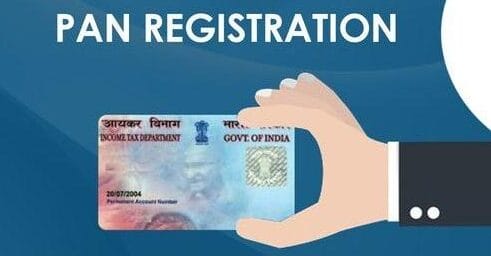Form 67 under the Income Tax Act, 1961, is a declaration that a taxpayer must furnish to claim the benefits of the foreign tax credit. Here’s a detailed overview of Form 67 and its compliances:
What is Form 67?
Form 67 is used by a resident taxpayer of India to declare foreign income taxes paid and claim a foreign tax credit (FTC) against their Indian tax liability. This form ensures that taxpayers do not face double taxation on the same income in both India and another country where they have paid taxes.
Key Points of Form 67 Compliances
1. Purpose
- Allows taxpayers to claim relief under Section 90, Section 90A (Double Taxation Avoidance Agreements), or Section 91 (Unilateral Relief) of the Income Tax Act, 1961.
- Ensures that taxes paid in a foreign country are recognized and credited against the Indian tax payable on the same income.
2. Contents of Form 67
- Personal details of the taxpayer such as name, address, PAN (Permanent Account Number), etc.
- Details of foreign income for which foreign tax credit is being claimed.
- Particulars of foreign tax paid, including the country name, nature of income, amount of foreign tax paid in foreign currency, and the equivalent amount in Indian Rupees.
- Details of foreign tax credit claimed in India.
3. Submission and Timelines
- Form 67 should be submitted along with the income tax return (ITR) filing for the relevant assessment year.
- It needs to be submitted each year for each foreign income type for which FTC is claimed.
4. Verification by Tax Authorities
- The tax authorities will verify the details provided in Form 67 with supporting documents such as foreign tax payment certificates, tax assessment notices from foreign jurisdictions, etc.
- They may allow the foreign tax credit based on the provisions of the relevant DTAA or unilateral relief under Indian tax laws.
5. Retention of Form 67
- Taxpayers should retain a copy of Form 67 and supporting documents for their records.
- These may be required during tax assessments or audits to substantiate the claim for foreign tax credit.
6. Consequences of Non-compliance
- Failure to submit Form 67 or provide accurate information may result in denial of foreign tax credit.
- This can lead to double taxation or higher tax liabilities if foreign taxes paid are not properly credited against Indian taxes.
Form 67 is essential for residents of India who earn income abroad and have paid taxes on that income in a foreign country. It enables them to claim relief under DTAA or unilateral relief provisions and avoid double taxation. Ensuring timely and accurate submission of Form 67 is crucial to comply with Indian tax laws and optimize tax efficiency for foreign income.
At Ujjwal Gupta & Co
We, at Ujjwal Gupta & Co, are dedicated to delivering personalized, high-quality solutions tailored to meet your financial and business needs. With our team of professionals and a client-first approach, we ensure that every challenge is met with expert guidance and strategic insight.
We are dedicated to ensuring your business’s success by providing best service practice available in the industry and that too at a cost effective pricing. Our team of experts is excited to work with you and provide the support you need to thrive in the Indian business landscape.
Our only motive is to create Value for Our Clients and accordingly, have a Client Value System at our Office.
So, let us help you navigate the complexities of finance and compliance, empowering you to focus on what matters most — growing your business. Get in touch today, and take the first step towards financial peace of mind.
Form 67 is a form prescribed under the Income Tax Act, 1961, used by residents of India to claim a credit for taxes paid in a foreign country. It allows taxpayers to report foreign income and claim relief under Section 90 or Section 91 of the Income Tax Act, which pertains to double taxation relief.
Individuals and entities that have:
- Earned income from foreign sources.
- Paid taxes on that income in a foreign country.
- Wish to claim a tax credit in India for the taxes paid abroad to avoid double taxation.
The primary purpose of Form 67 is to provide the Income Tax Department with information regarding:
- Foreign income earned.
- Taxes paid on that income in the foreign country.
- To facilitate the taxpayer’s claim for tax credit or deduction for foreign taxes under the applicable sections of the Income Tax Act.
Form 67 requires the following details:
- Taxpayer’s name, address, and PAN.
- Details of foreign income earned (nature and amount).
- Taxes paid in the foreign country.
- A statement declaring the taxpayer’s eligibility for claiming the credit for foreign taxes.
- Signature and date of the taxpayer.
Form 67 is filed as part of the taxpayer’s income tax return (ITR). It should be submitted along with the relevant ITR form (usually ITR-1, ITR-2, or ITR-3) for the financial year in which the foreign income was earned.
The deadline for filing Form 67 is the same as the deadline for filing the income tax return. Typically, for individuals and non-audit cases, this is July 31 of the assessment year. For audit cases, the deadline is usually October 31.
Failure to file Form 67 may lead to:
- Ineligibility to claim tax credits for foreign taxes paid, resulting in higher tax liabilities in India.
- Potential disputes with tax authorities if the foreign income is not properly reported.
- Loss of benefits under the Double Taxation Avoidance Agreement (DTAA) with the foreign country.
No, Form 67 is not the only document required. Taxpayers must also maintain supporting documents such as:
- Tax payment receipts from the foreign country.
- Proof of foreign income (e.g., bank statements, invoices).
- Tax Residency Certificate (TRC), if applicable, to support claims under the DTAA.
Form 67 can be used in conjunction with Form 10F. While Form 10F is used by non-residents to claim benefits under the DTAA, Form 67 is for residents claiming credit for taxes paid on foreign income. Both forms are part of the compliance process for avoiding double taxation.
If a taxpayer discovers an error in Form 67 after submission, they can rectify it by filing a revised income tax return within the prescribed time limit. Taxpayers should ensure that any corrections are accurately reflected in the revised return to avoid issues during assessment.
Why Choose UGC?

Client Centric Approach
Client is the key driver of our service offerings. Our approach to service offerings is based on a client centric and customized approach. Our specialized teams are a mix of technical and industry experience in order to serve clientele for their specific needs.

Team Work
We have built high performing teams supported by strong work ethic. Our team is a mix of experts, professionals and support staff from technical and varied academic, social and ethnic backgrounds. We believe diversification plays a vital role in motivating the team.

Quick Turnaround
We always endeavour for a quick turnaround time to serve our clientele. We are supported by an experienced and client focussed support teams to offer timely services to our clientele. In case of any business exigencies and time sensitive service requirements, you can always count on us.

Open Communications
We believe that open communication is the core principle in order to demonstrate trust, build long lasting and valuable relationships with clientele. We are committed to ensuring transparency in communication, service offerings and delivery. We provide professional services to our clients.

Client Value System
We value for the Client time and thus, we offer services that are value for money. Quality professional services are provided to our clients, so that they are able to achieve their desired results. We are a quality trademark in the industry and thus, our clients count on us always.

Quality in Delivering Work
Our service offerings are driven by quality and reviews at every level. We strive to provide a qualitative and value-added delivery to our clientele. At all times, we endeavour to provide exceptional client service by meeting client expectations and driving client satisfaction.


















